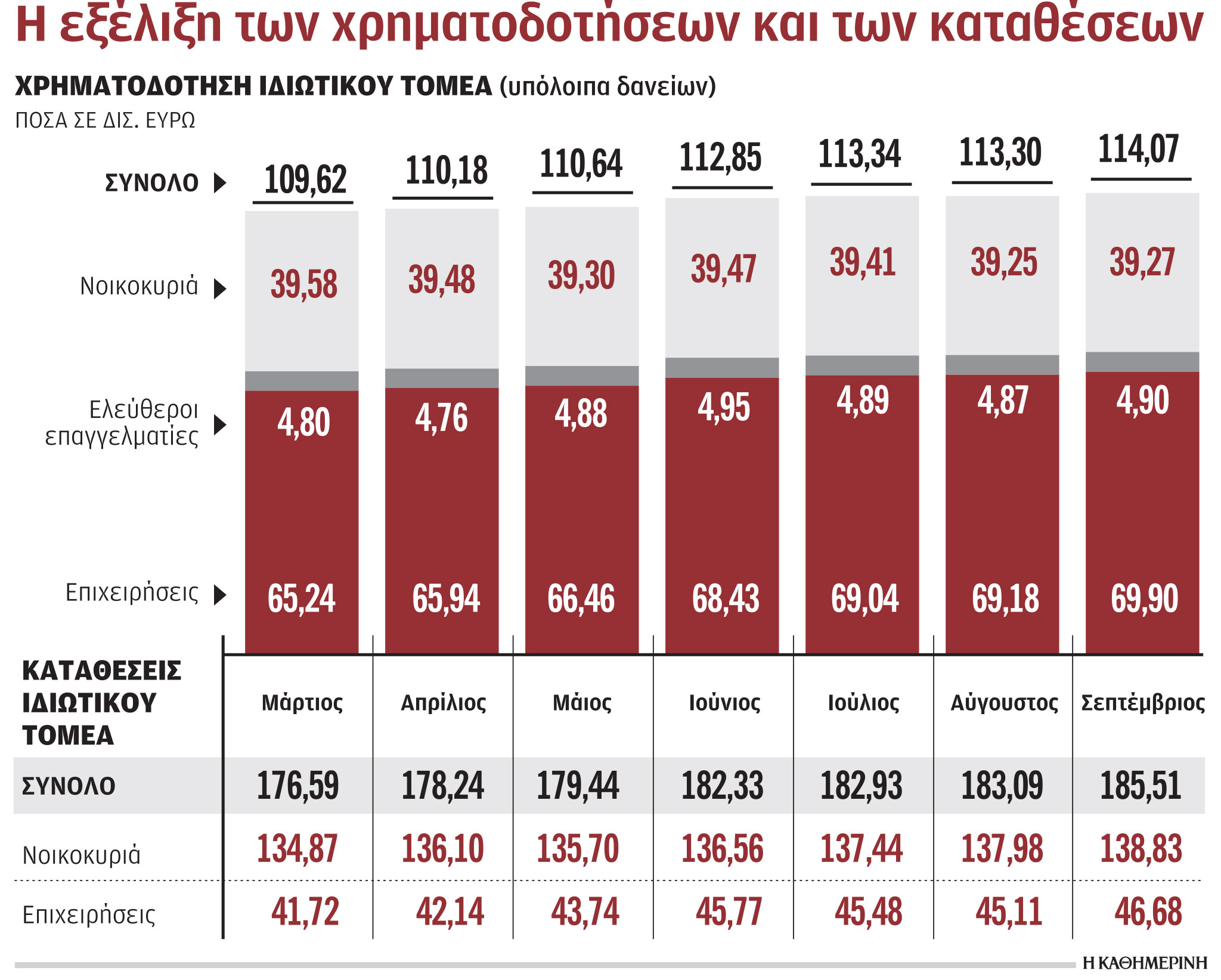
News business loans in the amount of 5.5 billion euros were provided banks in the 9th month of this year, accelerating payouts at a critical time to support the economy and fund business plans. The net credit expansion of €5.5bn relates to new loans after repayments of previous debts and boosted total corporate borrowing to €69.9bn from €63.5bn at the start of 2022.
According to her TTE for credit development net inflow of financing, i.e. new loans after maturity amounted to EUR 723 million in September – EUR 5.5 billion cumulative YTD – maintaining annual credit growth at high expansion levels, reaching 12.5% in September compared to 12.2% in August and 11.8% in July. The increase in appropriations is a consequence of the increased need for working capital caused by high inflationbut also the investment triggered by the activation of the resources of the Recovery Fund, through which banks have already provided loans of 700 million euros, an amount estimated to reach approximately 1 billion euros by the end of the year. .
Demand for mortgage loans remains low and fluctuated negatively in September.
An increase in financial activity in the economy is also evidenced by the data of the Central Bank on the increase in corporate deposits in banks, which amounted to 1.5 billion euros in September compared to the previous month, increasing the balances of corporate deposits by 46.7 billion euros. Such as explain “K” responsible bank managers, the increase in deposits is not only the result of liquidity flowing into the economy through increased tourism receipts, but also the result of increased funding approved by banks and held in bank accounts until it is spent on investment capital or working capital. It is significant that the deposits of enterprises increased by 11.5% year on year, that is, compared with last September, the month when business liquidity was 41.7 billion euros.
Increased investment interest from businesses has not been matched by a corresponding demand for loans from households, which, due to high interest rates and uncertainty about disposable income dynamics, are “steering aside” from initiatives such as home loans. Bank of England data show that demand for home loans remains subdued, resulting in housing credit contracting rather than expanding, meaning it moved at a negative rate (-3.1%) in September. Net inflow of financing, i.e. new loans issued after maturity, was in negative territory in September (-€48m), while credit expansion in the consumer finance sector was marginally positive, with positive net inflow of financing of only €20m Euro.
An encouraging element is the fact that household liquidity remains high as government support measures have prevented households from “eating from prepared meals”. Thus, their deposits in commercial banks increased by 753 million euros in September compared to August, while the total balances on deposits increased to 138.8 billion euros. According to data from the Bank of Greece, household deposits increased by 4.6% compared to September last year, when balances were 132.1 billion euros.
Source: Kathimerini
Lori Barajas is an accomplished journalist, known for her insightful and thought-provoking writing on economy. She currently works as a writer at 247 news reel. With a passion for understanding the economy, Lori’s writing delves deep into the financial issues that matter most, providing readers with a unique perspective on current events.